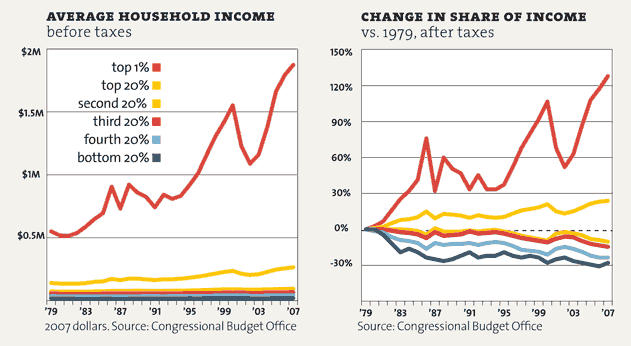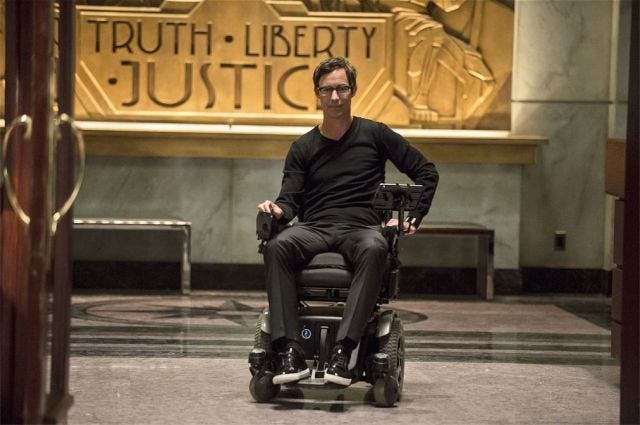So What, Who Cares (volume 1, issue 37) Why you should always check to see if an infographic contains actual info
Hello! A few small bits of housekeeping, then on to the good stuff.
First item: Thanks to all of you, the So What, Who Cares readership has now cracked the 300-person mark. It would not be possible without those of you who have tweeted links, recommended the newsletter on Facebook or otherwise chatted it up. Thank you. Time is precious and inboxes can get clogged, so I deeply appreciate your letting me into your email four times a week.
Second item: If these newsletters are going to the promotions tab under Gmail, here's a how-to for making sure that doesn't happen again.
*

I can't be the only person who reads things about the year 2020 and instantly hears Barbara Walters' sui generis pronunciation of that number. That has nothing to do with this story at all, just me putting it out there.
Anyway, productivity/career website The Muse posted an infographic about the most important work skills in the year 2020, based on a white paper from the University of Phoenix -- so take the sourcing with that context in mind -- and what it basically comes down to is something you readers already knew based on the October 7 issue of this newsletter: You will stay employed if you have the kind of skills that can not be easily automated or replicated via technology.
So what? Let this be a reminder to always check the sources for an infographic and see where the "info" is coming from and who might want to push it to the public.
Who cares? Honestly, this was mostly an excuse for me to post to an earlier forward-thinking body of work that nailed the future-anxiety thing about ten years ago, Snarkmarket's The New Liberal Arts. They argue that a well-rounded education in this age includes depth in the following areas: attention economics; brevity; coding and decoding; creativity; finding; food; genderf***; home economics; inaccuracy; iteration; journalism; mapping; marketing; micropolitics; myth and magic; negotiation; photography; play; reality engineering; translation; video literacy.
There -- you've got the laundry list of cognitive skills that are going to break big across the culture. You can even argue that some already are.
*
America's biggest businesses are beginning to get worried about income inequality in the U.S. Earlier this year, business sectors ranging from restaurants to retail, hospitality to home appliances, began noting that the growing income gap among Americans is bad for business and bad for the overall economy:
“It’s going to be hard to maintain strong economic growth with such a large proportion of the population falling behind,” [Washington University economist Stephen Fazzari] said. “We might be able to muddle along — but can we really recover?”
Mr. Fazzari also said that depending on a relatively small but affluent slice of the population to drive demand makes the economy more volatile, because this group does more discretionary spending that can rise and fall with the stock market, or track seesawing housing prices.

In practical terms, the growing wage gap translates into a shrinking middle class. Without these customers, there are no department stores, no casual-dining restaurants, no mid-tier hotel chains, no affordable and endurable appliances.
Adding to the unease: Goldman Sachs CEO Lloyd Blankfein, who contends that income inequality is destabilizing to the country's economy. And this week, tthe Center for American Progress released the results of a research study in which they analyzed the SEC filings of the U.S.'s top 100 retailers and found that more than two thirds of these companies are citing consumers' flat or falling incomes as risk factors for their business.
So what? It's one thing for ordinary Americans to live with a decade of flat wages -- the same decade where health care, child care, food and educational costs climbed. It's another if these Americans stop putting their money in the pockets of investors.
Expect "income inequality" to become a huge issue in the 2016 elections. Expect different sides of the political spectrum to lay the blame on a weak and overmatched labor movement, the emergence of the elite technology egghead class, or the outsourcing of jobs to other parts of the world. And expect politicians to have opinions on whether or not we should raise the minimum wage. Chris Christie is already dancing to that tune.
Who cares? Income inequality is more than "We need to make sure everyone can shop their way to a stronger economy." Income inequality curbs children's emotional, social, cognitive and occupational opportunities from birth on. (If the child makes it past babyhood: Infant mortality is a serious concern in the poorest states in the U.S.) According to a 2009 Harvard study, income inequality in the U.S. is the root cause of one out of every three deaths in this country.
Focusing on spending power is a first step toward addressing how income equality is perpetuated and what the U.S. government cares to do about the least of its citizens. (Or what individual states can do while waiting for the U.S. to catch up -- one writer proposes that it wouldn't hurt forward-thinking governors to see what they can do to become "mini-Finlands," i.e. places with cheap medical care, good public education, better working conditions and less stressed people.)
*

Your pop culture note of the day: I think that my favorite new show of the season so far has been The Flash (available with a one-week lag on Hulu). SO FAR: The actor playing Barry Allen (Grant Gustin) is adorkable without being mired in Apatovian manchild territory or Wheedonesque nerd-boy bumbling.
But the really nice surprise is Tom Cavanagh as "Harrison Wells": he buzzes with an opaque and prickly good humor that makes every scene he's in riveting to watch. I had been a fan of Ed in the very early seasons precisely because Cavanagh can be unsettling and that's a good thing. (It is too bad Ed will likely never make it to DVD; Ginnifer Goodwin's performance on that show should have clued everyone in that she is phenomenal.)
Anyway: you don't need to know anything about DC Comics to enjoy this show and it is the least broody of the superhero TV shows out there -- just a lot of fun so far.
*
Did you miss an issue of So What, Who Cares? The archive is here. Also, there is now a topic index that tells you what was in each issue. If you're like, "I remember there was an issue with otters in it, but when ...?" -- well, now you can find it. (It was September 24, btw.)
As always, I welcome your feedback and suggestions via email or Twitter. Always let me know what you think about So What, Who Cares? If you really like it, tell a friend to subscribe.
